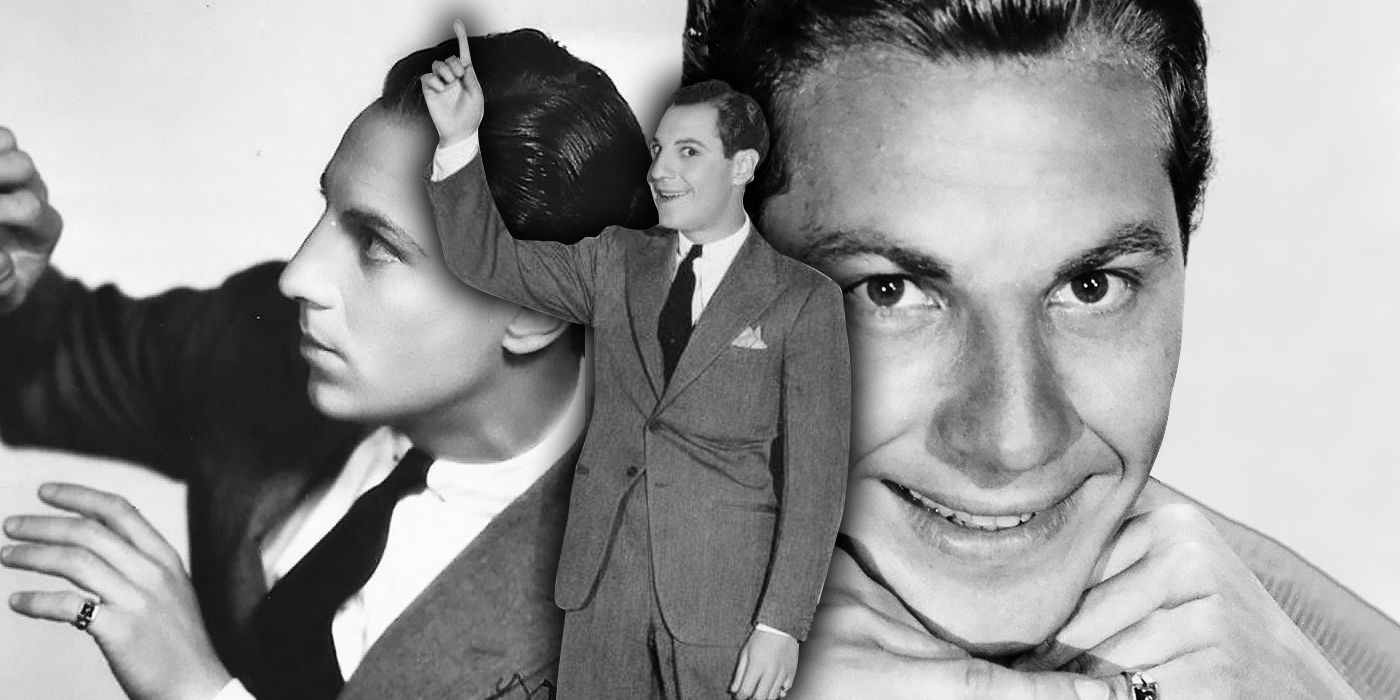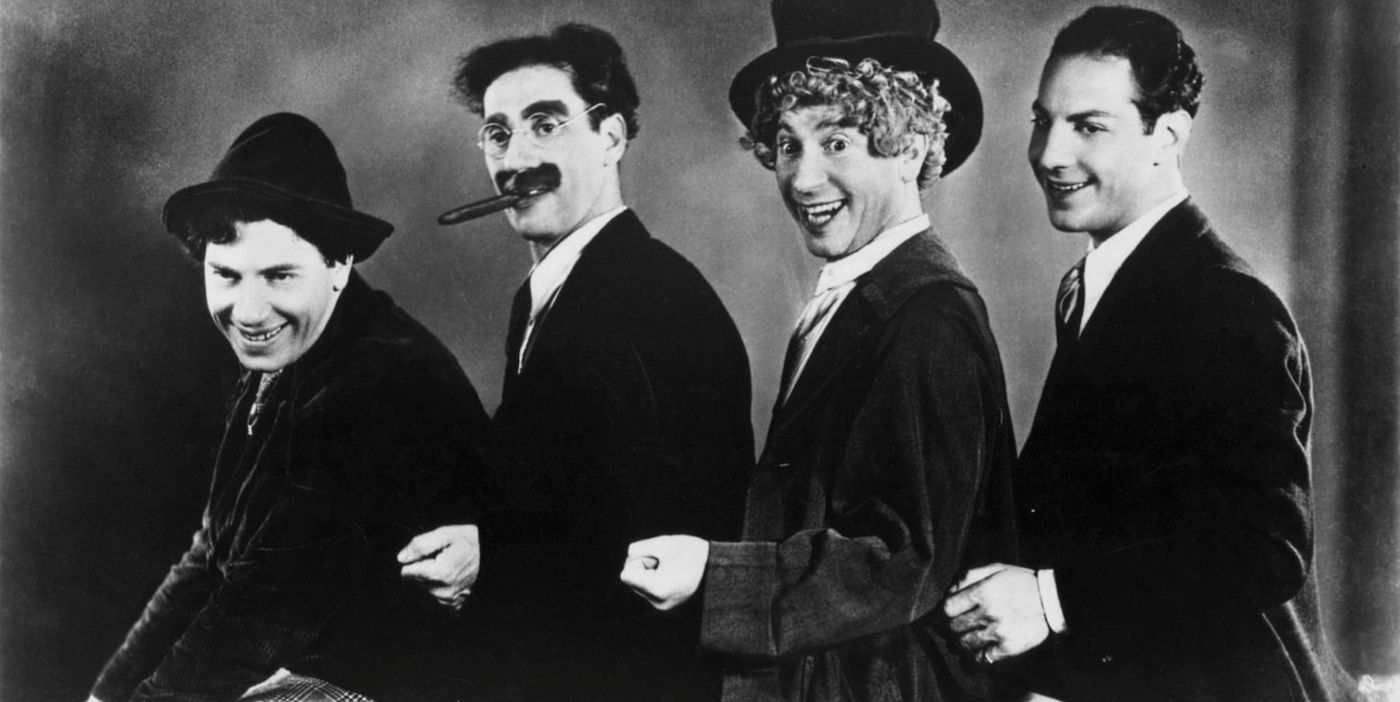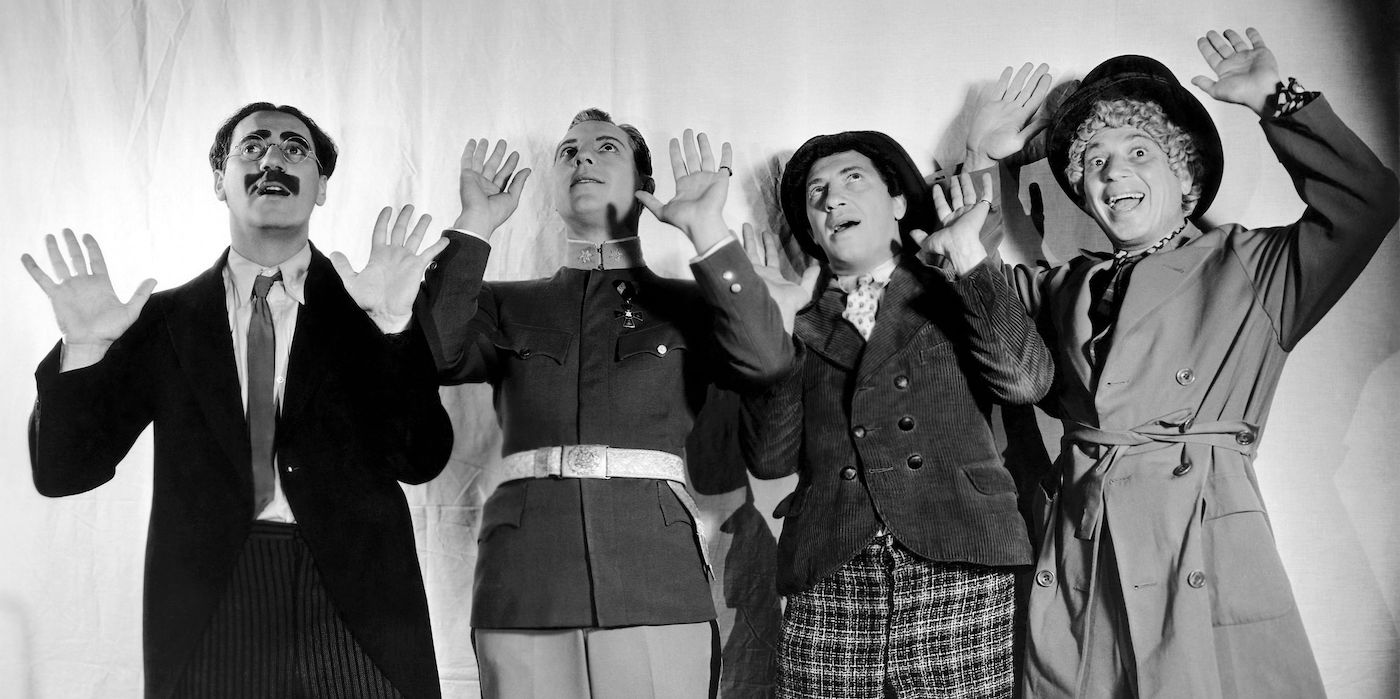In Christopher Nolan’s 2006 magician drama The Prestige, Robert Angier (Hugh Jackman), known professionally as “The Great Danton,” ends his performances with a teleportation trick involving a body double, forcing him to take his final bow underneath the stage while the double gets to bask in the adoration from the audience. Whether they want to admit it or not, people who get up and perform for an audience want to be celebrated in some way. As actor and comedian Kevin Pollak would say on his old podcast, they suffer from “hey-look-at-me disease.” This is especially true in comedy, where the sole goal is to make the audience laugh. In a comedy troupe, however, someone will always be saddled with the job of setting up the joke rather than delivering the punchline. Such was the case with the legendary comedy team the Marx Brothers and its youngest member, Zeppo Marx, who served as the ideal straight man for the group in their first five films.
Zeppo joined his older brothers Groucho, Harpo, and Chico in their stage performances in the late 1910s, replacing their brother Gummo who joined the army. With Groucho the master wisecracker and wordsmith, Harpo the otherworldly mischief maker, and Chico the overconfident conman, very little wacky comedic space could be filled up after that, and Zeppo became the designated stiff. He was also the most traditionally handsome of the bunch with a lovely singing voice. Typically, his role in their plays and films would be either the romantic lead or as Groucho’s assistant or secretary. After their contract with Paramount was up, Zeppo decided to leave the performing business entirely, becoming a theatrical agent for a number of Hollywood stars, including his brothers, due in large part with his frustrations of being the straight man and not getting to really show off his comedic chops. However, once Zeppo left the troupe, a key component to making the brothers’ comedy work was lost, and that void proved nearly impossible to fill.
While being the straight man is often a thankless task, they play an invaluable part in getting the laugh. A joke without the proper setup is merely a non sequitur, which on occasion can get a chuckle, but the release of a big laugh requires a proper context in which to generate that laugh. To again invoke The Prestige, a well constructed joke works much in the same way as a magic trick with three distinct parts: the premise, the audience’s expectation of the punchline, and the subversion of that expectation. For the Marx Brothers, particularly in the case of Groucho’s wisecracks, these parts must be more finely tuned than Dominic Torretto’s Dodge Charger, not just in joke quality but in quantity and pace. Zeppo, most of whose material was performed with Groucho, matched his brother’s unparalleled timing in every way to maximize the zingers.
Take what is inarguably Zeppo’s finest hour of masterful timing in their second film, Animal Crackers, from 1930. In the scene, Groucho’s Captain T. Spaulding dictates a letter to his secretary Jamison (Zeppo) for his lawyer. The contents of that letter are naturally absurd, filled with nonsense and strange punctuations. Throughout the scene, Jamison has to interrupt his boss with clarifications and questions, and the back and forth speed at which the two talk without ever stepping on one another truly amazes. Even Zeppo gets to come in with a pure joke like, “How do you spell semicolon?” or struggle pronouncing the name “Hungadunga.” It is a masterclass comedy two-hander scene that still plays beautifully 91 years later.
Zeppo has many of these kinds of back and forths with Groucho over the course of their five films. While Margaret Dumont was the perfect person for Groucho to barrage with one-liners like they were going out of style, as she represented everything about the elite he looked to mock, and Chico served as the perfect accomplice for escalating nonsense, Zeppo’s characters provided a perfect partner for Groucho's routine to actually feel like he is having a conversation with someone instead of saying funny lines.
Part of why Zeppo has such a great rapport with Groucho, naturally, comes from growing up together as brothers and honing their skills not just in vaudeville, on Broadway, and in film, but also simply in their day to day lives. In the biography of Groucho Marx Hello, I Must Be Going! by Charlotte Chandler (pen name for Lyn Erhard), Groucho proclaims, “Offstage, he was the funniest of us.” To showcase that onstage, Zeppo would often serve as understudies for his brothers in their stage productions. Most famously, he assumed the role of Captain Spaulding in Animal Crackers for a run on stage when Groucho came down with appendicitis. Zeppo’s performance was met with great praise, even from Groucho himself. In the film, there is even a scene that takes place in the dark where Zeppo plays Spaulding when Groucho was unavailable. You would never be able to tell.
Having all this history in the comedy game, though unspoken explicitly in the films, adds an extra authenticity to the straight man character. What makes Zeppo unique in this capacity is that he exists as the perfect bridge from the zany, anarchic world of the brothers to the uptight, elite society they look to smash. Being quite handsome and having a lovely voice gets him in the club, and in a way, that lets him invite these three other bringers of chaos through the door for them to wreak havoc. He has the ability to step on either side of that dividing line when the occasion calls for it. In Duck Soup, the Marx Brothers’ masterpiece, he makes sense not just in a tux at a government party but also in the messy trenches of the third act war.
Once Zeppo left the group and the other three made their way over to MGM, plenty of bland, handsome guys tried to fill his shoes, from Allan Jones in A Night at the Opera and A Day at the Races to Kenny Baker in At the Circus to Tony Martin in The Big Store, but none of them felt of apiece with Groucho, Harpo, and Chico in the slightest. They had none of the off kilter energy Zeppo had, always trying to please, as if they were the regular movie star lead of the film. Even if he didn’t like it, he always knew how to calibrate himself with all the other moving parts of a Marx Brothers production.
Groucho once said, “Zeppo didn’t like acting and didn’t want to be an actor,” and had his brother Gummo not gone into the army, perhaps he never would have been one. However, he made an indelible mark on cinematic comedy history, though very few would ever recognize that as such. The straight man barely gets any glory in a comedy duo, and in a foursome, they may as well not exist. Zeppo Marx showed how important and difficult that role is in practice, and if audiences didn’t think it is okay for that kind of performer to figuratively take a bow underneath the stage, maybe he would have felt differently about performing and made many more movies, though that may have prevented him from obtaining a patent on a watch that alerts you of irregular heartbeats (something he really did do). The Marx Brothers’ five film run, in five consecutive years at Paramount, remains one of the great peaks for comedians in film history, and Zeppo played a crucial part in that success.



